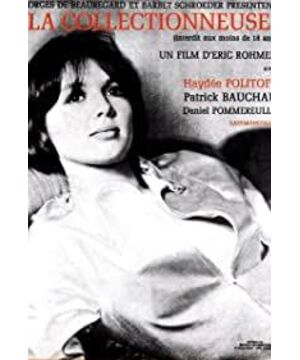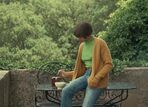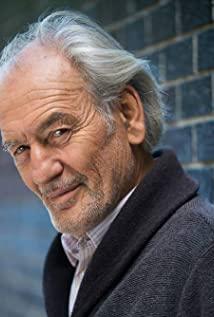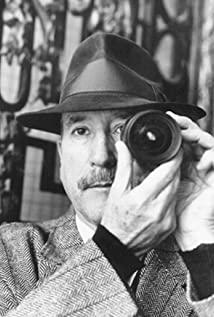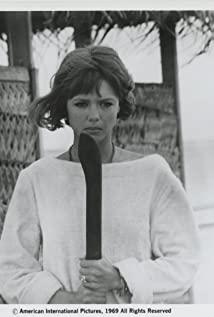Many people will think this movie is boring, and some people fell asleep at that time.
To be honest, I also find it boring. There are two main reasons for it: it uses a lot of internal monologues, which weakens the performance of the actors, and more importantly, it has no music, only a few seconds every now and then. Chung ran out of nowhere with meaningless music.
But I think that in the 1960s, when the relationship between men and women was chaotic and vulgar, this movie would definitely attract the attention of many people.
Back to the movie itself.
To be honest, I always thought that the primary function of a movie is to tell a story, tell the story well, and then show your skills and other things, which is why I have always refused to watch "Wuji". The story of "The Collector" is also not very well told, at least the story is very bland. But there are other things about it that intrigue me.
The male protagonist in the film is talking all the time, sometimes in inner monologue, sometimes in dialogue with his friends. His inner monologues made me laugh a lot, really—his dream-like self-talk language was so much like mine—so funny. The difference is that my words were never spoken, but he was expressed through the film.
He is a person who walks with spirit. He gives meaning to everything before acting. He always looks at the world with his own eyes instead of objectively. He has to speculate for a long time instead of personally confirming the slightest changes in the outside world. . So when faced with temptation, he is more imagining, imagining that everything has happened, imagining the meaning and hint behind the actions and eyes of others that may be meaningless.
To him, the heroine Haidi is just a symbol, a symbol representing the objective world. He longs to get it but has not acted. He just uses the methods he thinks fit to test and approach slowly, and then live in his fantasy. In the torment - this is actually a kind of person.
We did not leave immediately after the movie, but listened to others expressing his views and opinions.
People are talking more about the chaotic private life of the heroine and the "righteousness" of the hero, which is marked with "" because I strongly disagree with this statement. He and Hai Di are two completely different people. Hai Di looked for what she was looking for in the crowd of men with confused eyes. Her behavior should be in line with the trend of the current era. Feelings and sex should be like that, it doesn't matter if it's right or wrong. The male protagonist is a person who insists on his own standards of life and refuses to let go of himself. They are two different people in two worlds. They cannot understand and communicate with each other, but they live in the same house and the hero still lives in the same house. I have a strong interest in this woman (personally think that he should be a person with a mental cleanliness, such an arrangement is really unreasonable). The director just made a very neutral presentation. As for who is good and who is not, he doesn't seem to pay attention.
In the end, they all still live in their own trajectories, one continues to mix with men without a purpose, and the other continues to live in the fantasy world woven by themselves.
They will soon be forgotten by each other.
View more about The Collector reviews


